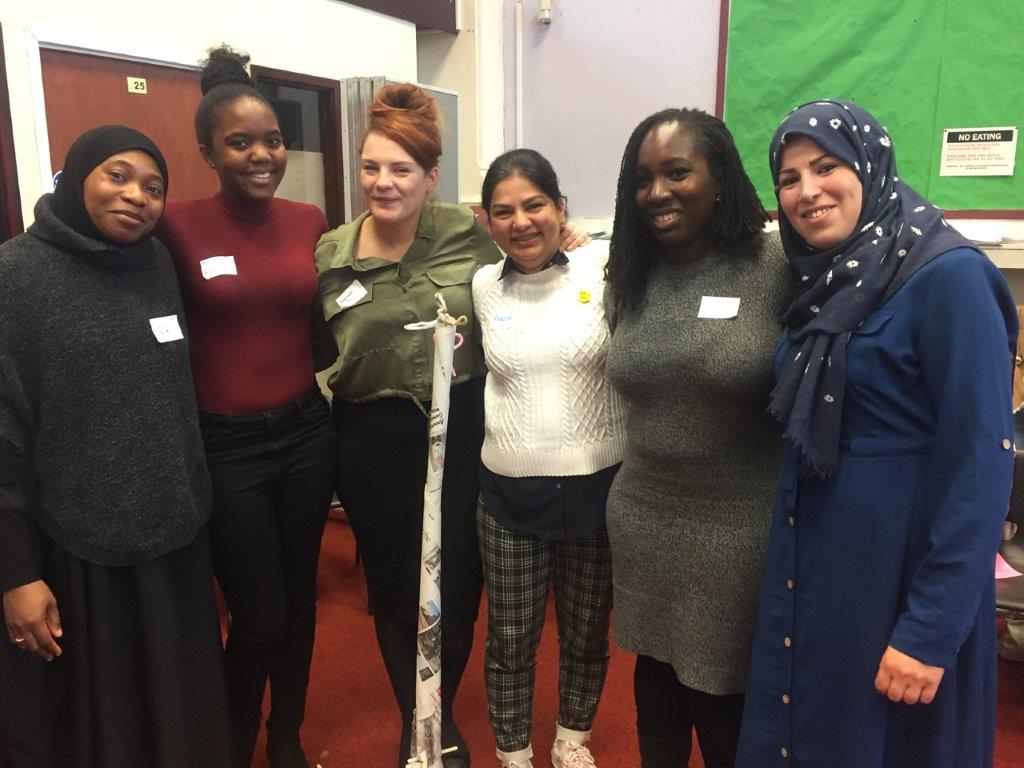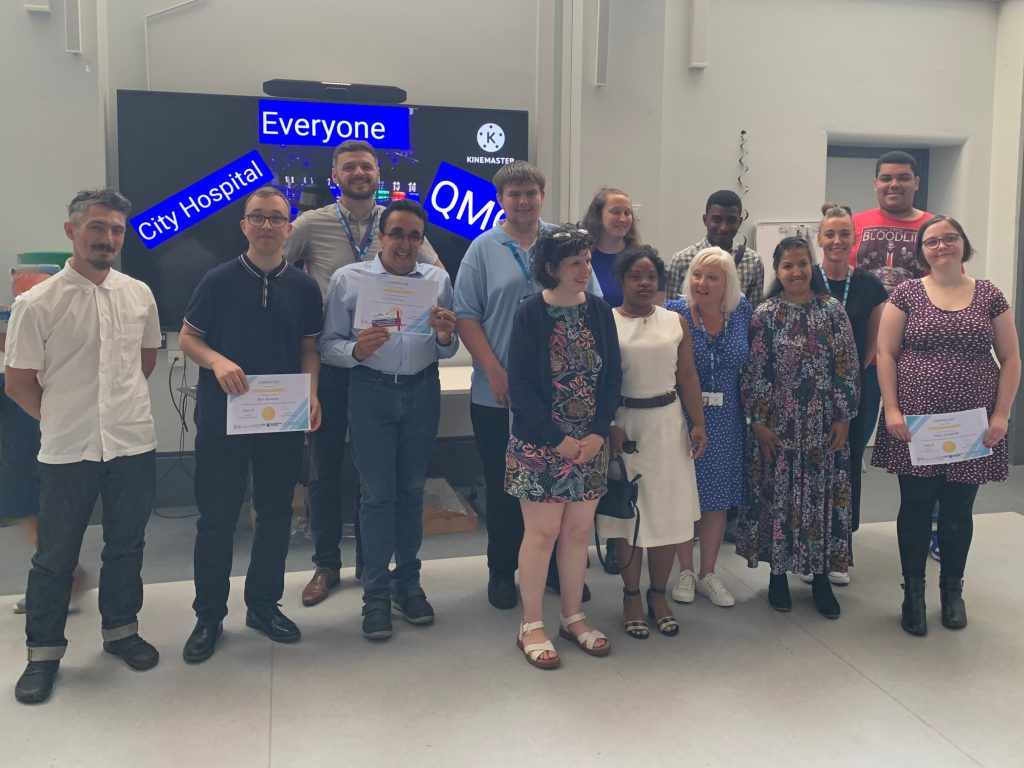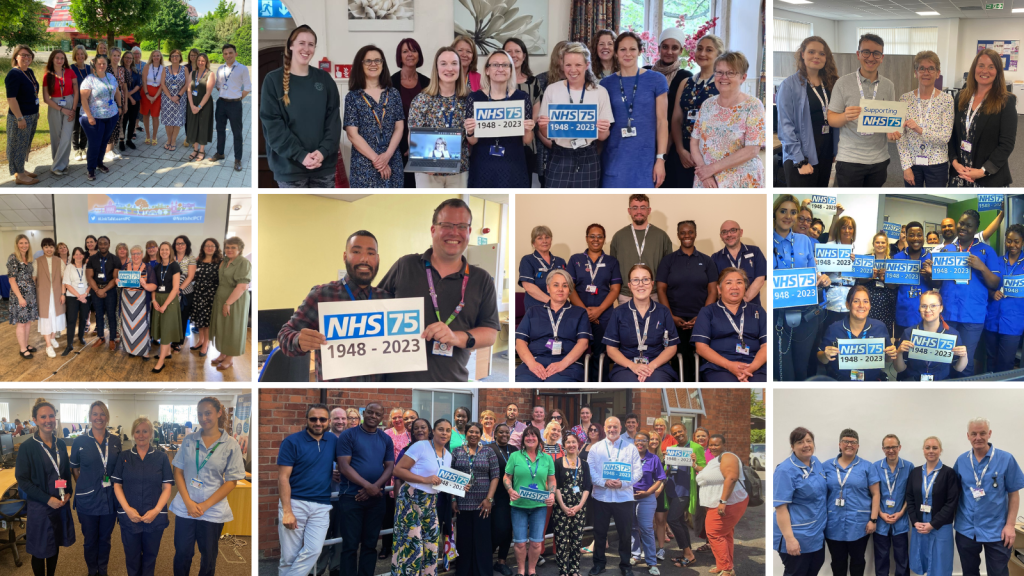Local hospitals develop a new information resource for people with cancer
Doncaster and Bassetlaw Teaching Hospitals (DBTH), in collaboration with Macmillan Services and Aurora Wellbeing Services, is proud to announce the launch of a new mobile application specifically designed to empower and support cancer patients throughout their treatment journey. The HealthZone Doncaster and Bassetlaw Cancer Care app is a free to use resource that has been designed with local people in mind. It offers people diagnosed with cancer access to information and support they need whilst being treated for their condition.
The newly launched app comes as a result of the hospital’s commitment to enhancing patient care and providing comprehensive support for cancer patients. It was created in partnership with Macmillan Cancer services, based within the Outpatient Department at Doncaster Royal Infirmary, and Aurora Wellbeing Services, a local charity who provide holistic therapy and support for people within Doncaster, Bassetlaw and Mexborough. HealthZone was funded by the SYB Cancer Alliance and builds on the work and implementation of a similar project at Chesterfield Royal Hospital. Through the mobile app, patients can access information about their treatment, specialists involved in cancer care and personalised care planning. In addition, HealthZone offers practical advice on attending hospital appointments, transport options available to patients, contact information for departments and financial support. Also listed are local support groups, wellbeing and mental health services and complementary therapies available within the area.
Cancer patients were actively involved in shaping HealthZone’s functionality and usability during the development process. Patients receiving treatment within the Chatfield Suite at Doncaster Royal Infirmary offered valuable insights and feedback, and preferences were considered to ensure that the final product caters to their needs and challenges while being treated for their cancer.
Feedback from patients were that the app is simple, visual and easy to navigate. Patients felt that having an app meant it was easier to access information in one place instead of referring to different leaflets and cards that can get misplaced once at home. A suggestion was to include a helpful guide to terms used by clinicians and healthcare professionals to help patients and their families better understand their care. Paula Trelford, a patient involved in the review, explained that people often struggle with the terminology used by clinicians, and this forms a barrier to processing information effectively. Paula said: “When I had my first appointment, I didn’t understand some of the acronyms used and had to ask my clinical team for an explanation. This can affect patients taking in everything that is discussed. If the app included a guide explaining the different jargon and acronyms, other patients can access this before their treatment and have a better understanding of the different aspects of their care.”
Toni Peet, Personalised Cancer Manager at DBTH, said: “We are excited to be able to launch HealthZone for our patients. The Cancer Services team have worked hard to ensure that patients have the information they need to make their experience with us that bit easier. The app contains localised advice for patients which will prove useful to have in one place. Delivering this information in a digital format ensures it is more accessible and can be updated at any time, however, printed information will remain available, if requested. This project has been a collaborative effort across the different organisations involved in local cancer support and we are confident that this app represents an effective way of engaging with our communities, especially those being treated in our care.”
Furthermore, Lesley Barnett, Deputy Director of Nursing for Cancer, Chemotherapy and End of Life Services at DBTH, emphasized the value of this partnership and stated: “We are immensely proud to unveil this app that exemplifies our commitment to patient-centric care. Working with the expertise of Macmillan Services and Aurora Wellbeing Services, along with the invaluable input from cancer patients themselves, we have succeeded in creating a tool that will make a tangible difference in the lives of those affected by cancer. The HealthZone app reaffirms our dedication to empowering our patients.”
The HealthZone Doncaster & Bassetlaw Cancer Care App is now available for download on both iOS and Android platforms. For more information or to download the app, please visit: https://www.dbth.nhs.uk/cancer-services/cancer-care-app/
Alternatively, the app can be downloaded through Apple Store or Google Play by searching for ‘HealthZone UK’ and then ‘Doncaster & Bassetlaw Cancer Care’ within the app.


